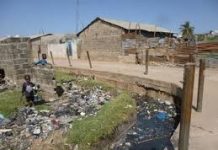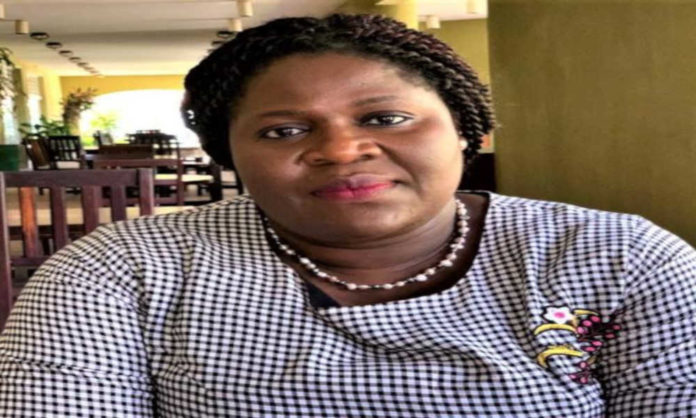By Awa B. Bah
Article 19 on Monday 29th April 2019 commenced a half day high level conference and training of the National Assembly Select Committee members on human rights and constitutional matters at a hotel in Senegambia.
The event was held in partnership with the Institute for Human Rights and Development In Africa (IHRDA) with the financial support from the European union.
Article 19 is implementing a two years project aimed at strengthening human rights standards in the Gambia. A key component of the project is to support the setting up and functioning of a parliamentary select committee on human rights and constitutional matters. In late 2018, the National Assembly of the Gambia set up the said committee with inclusive membership from the different political parties represented in the national assembly.
The change of government in the Gambia is hope for strengthening laws, policies and institutional mechanisms to ensure that democracy, rule of law and human rights are upheld at all levels of government and by all institutions especially the oversight bodies such as the national assembly. It is also an opportunity for victims of human rights violations whose rights to an effective remedy and reparations have never been fulfilled by government.
It is upon this background that article 19 undertakes various activities within the Gambia and in collaboration with the National Assembly and its partners to the project, IHRDA, to accompany the transition to democracy. The critical role of parliament will be enhanced if human rights, especially international obligations are integrated and mainstreamed in national policies. It is the thinking of Article 19 that by creating the parliamentary select committee on human rights and constitutional matters which is aimed among others at ensuring compliance with human rights standards in all businesses before parliament, the National Assembly has set itself to play a pivotal role in championing human rights in the new Gambia.
Against this background and following the series of meetings and internal assessments, Article 19 and the National Assembly agreed to hold a conference for National Assembly members and an in-depth capacity building training tailored for members of the parliamentary select committee on human rights and constitutional matters and their technical assistants on the role of parliament in safeguarding human rights in The Gambia. Members of the newly formed committee will undergo a series of hands on training on human rights in the coming months to better support the government and its institutions to comply with the country’s human rights obligations and to promote best practices with a view to strengthening governance and a culture of human rights after two decades of repression and negation of fundamental rights.
The overall objective of the conference and the capacity building workshop is to familiarize the parliamentarians with their role in protecting and promoting human rights in The Gambia and to provide them knowledge and tools to better monitor compliance including in the reforms processes and adoption of new laws.
At the end of the training, parliamentarians will understand the role and support the mandate of the parliamentary select committee on human rights and constitutional matters. Members would also be equipped to perform their role in influencing all business of parliament to be human rights compliant.
In her welcoming address, the regional director of Article 19 West Africa Fatou Jagne Senghore said Article 19 has established in 2017 formal relations with the National Assembly of The Gambia and subsequently signed an MoU in 2018 to implant the EU funded project aimed at strengthening human rights in The Gambia.
She said the role of the executive and the legislature is therefore to complement each other: the executive must govern, while the legislature asserts its key role as representative of the people by acting as an overseer of the executive. Thus, the use of the committee system to scrutinise and investigate whether the executive or its authorised agencies have acted properly in the implementation of public policies and programmes is crucial.
Article 19 acknowledges the consistent stance of the European Union in support of human rights in the country during the difficult and dark days and thanked their implementing partner IHRDA for its support and partnership.
Mrs. Amie Njie talked about their series of consultations with the National Assembly, which led to establishment of the human rights committee. She also declared their availability to continue supporting them.
Attila Lajos, EU Ambassador to The Gambia said they are committed to supporting the newly established and first ever Parliamentary Select Committee on Human Rights and Constitutional Matters to better assist government in implementation of its human rights obligations.
He said the critical role of Parliament will be enhanced if human rights especially international obligations are integrated and mainstreamed in national policies.
In her opening address, the speaker of the national assembly Mariam Jack Denton said the role of the National Assembly in safeguarding human rights in the Gambia is significant for the fact that as an organ of the state, the National Assembly has equal obligation to respect, protect and fulfill the human rights obligations to which the state has bound itself by international treaties and the constitution. The National Assembly, she noted, has a unique role to play as it is the best placed institution of the state to realise human rights in the sense of making the necessary adjustments to the legal framework to ensure that human rights are adequately protected and fulfilled.






















